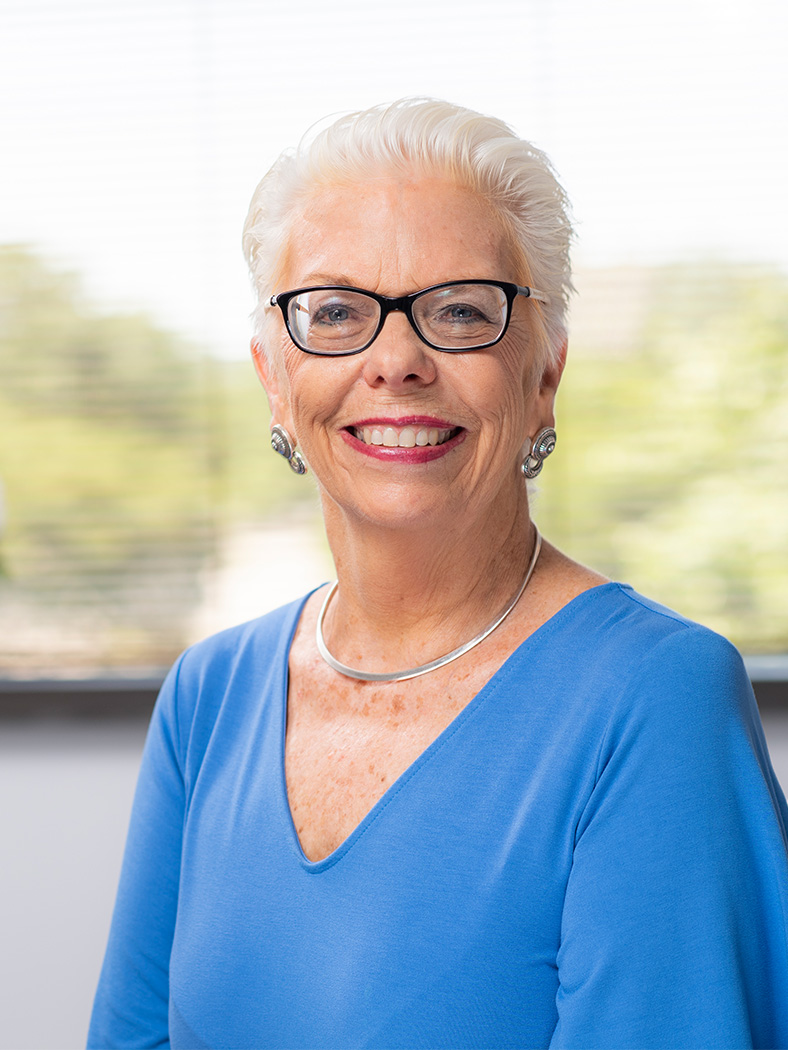For Any Cancer Diagnosis
- Q.
I have been treated by my oncologist for cancer for over 2 years. It currently has spread and I've been referred to hospice care. I thought there would be more treatments available to me. My oncologist was so positive at the beginning and now I feel that she is avoiding me and I'm very hurt. Should I confront her?
A.Yes, you should talk to your doctor about your feelings and concerns. Don’t be afraid to be honest with your doctor. Many doctors have difficulty dealing with the emotional side of cancer and they may not know how to deal with their own feelings as well as those of their patients. Decisions around treatment should be discussed with the patient and ending treatment is a decision you should make with your doctor. What are her reasons? Is the decision to end treatment due to concerns about the benefits of treatment verses the risks and discomfort of continued treatment? You have the right to explore every possible medical treatment available. Are there clinical trials that may be available to you at this time? You may also consider seeking a second opinion. These are all questions that can be part of the discussion you have with your doctor.
The Cancer Information Service (1-800-4-CANCER), through the National Cancer Institute may be a helpful resource for you. They can provide the latest cancer treatment information as well as a list of comprehensive cancer centers and clinical trials.
It can also be helpful for you to speak to someone about what you are feeling. You’ve developed a relationship with this doctor over the last two years and this is an understandably difficult and painful loss. It is important to maintain hope and our social workers can help you to redefine hope even when cancer treatment may no longer be an option.
- Q.
What is hospice?
A.Hospice focuses on caring, not curing, those who are terminally ill. It is considered to be the model for quality, compassionate care for people at the end of life.
Hospice involves a team approach to expert medical care, pain management and emotional and spiritual support expressly tailored to the patient’s needs and wishes. Support is provided to the patient’s loved ones as well.
In most cases, care is provided in the patient’s home, but hospice can also be provided in freestanding hospice centers, hospitals, nursing homes and other long-term care facilities. Hospice services are available to patients of any age, religion, race or illness. Hospice care is covered under Medicare, Medicaid, most private insurance plans, HMOs and other managed care organizations.
Typically, a family member serves as the primary caregiver and, when appropriate, helps make decisions for the terminally ill individual. Members of the hospice team make regular visits to assess the patient and provide additional care or other services. Hospice staff is on-call 24 hours a day, seven days a week. The hospice team develops a care plan that meets each patient’s individual needs for pain management and symptom control. The team usually includes:
- The patient' s personal physician
- Hospice physician (or medical director)
- Nurses
- Home health aides
- Social workers
- Clergy or other counselors
- Trained volunteers
- Speech, physical, and occupational therapists (if needed)
Among its responsibilities, the hospice team:
- Manages the patient’s pain and symptoms
- Assists the patient with the emotional and psychosocial and spiritual aspects of dying
- Provides needed drugs, medical supplies, and equipment
- Coaches the family on how to care for the patient
- Delivers special services like speech and physical therapy when needed
- Makes short-term inpatient care available when pain or symptoms become too difficult to manage at home, or the caregiver needs respite time
- Provides bereavement care and counseling to surviving family and friends.
- Q.
My mom has been living with metastatic breast cancer for about 8 years and she's at the end of her life now. She has started hospice care and her prognosis is that she has about 4-6 months left. I don't feel particularly sad because I've kind of prepared myself for this along the way and my family has always been good about informing me at each step in my mother's care. Also, I'm worried about how I will feel about her loss after she's passed and worried that the grief might come all at once. What do you think?
A.I appreciate your honesty in raising this important issue. The concern you are experiencing over whether or not your grief might come all at once is commonly voiced by people who are expecting the death of a loved one and/or are bereaved.
Although we may discover ourselves anticipating a loved ones death and therefore beginning to grieve, the actual death of our loved nonetheless is traumatic and can lend itself to our feeling overwhelmed. Feeling “prepared” that is, cognitively for a loved ones death, does not necessarily mean that at the same time we are fully “prepared”, emotionally. This is normal; though I have to admit it can be disconcerting at the same time and feel quite unpleasant. Many people who have shared their stories with me have often described themselves as being on an emotional roller coaster. You may experience many feelings such as disbelief, anger, sadness, and confusion either individually, or perhaps all at once. It is important to remember however that everyone grieves a loss in their own way and in their own time. There is no set way in which to grieve. Although the literature and others around us may paint a landscape for us of what grief may look like, there can be no blueprint or roadmap for the grief experience. Remind yourself that the emotions you may be experiencing in the moment, no matter how palpable they may feel, will not last forever. As with the changes and movement of the tide, there will be days when you may feel good about yourself and life and days when you may not feel this way. Once again this is normal. As time progresses the moments when you feel good about yourself and life will begin to take precedence over those moments of grief and uncertainty. And, last, it can be helpful to view the grief experience as an important part of the healing process as well. Although the grief may be intense at times and the range of emotions you may be experiencing may feel consuming, simply allow the experience to be what it is. Try not to judge the process nor be critical of yourself. This is the body’s way of re-grouping and attempting to heal itself after a traumatic event. Learn to trust and honor the body’s wisdom.
In addition to validating your emotions and grief, I would encourage you to reach out to people who are supportive of you. Surrounding yourself by people who are nurturing and life affirming can help strengthen your capacity to cope with your loss and ensure the healing process.
- Q.
I have stage 4 cancer and after 5 years of receiving chemotherapy, I'm being told there are no more treatment options for me. Because I survived so long with a terminal diagnosis, some people in my family don't seem understand how serious this is. How can I help them understand?
A.I am sorry that you have been told that there are no other options to treat your cancer. It seems that you have been on quite a journey over the last 5 years which likely took an incredible amount of courage and energy. It’s possible that your brave outlook allowed your family to think that the cancer would remain under control for a long time to come.
It is not uncommon for people to deny the seriousness of cancer, including people with cancer as well as their loved ones. While denial is often thought of in a negative way, it can be a useful mechanism that protects us from the sometimes intense emotional pain involved with being diagnosed with cancer. Perhaps the indifference that you see in your family members has a component of denial that has protected them in some way.
I’d recommend developing a strategy to communicate your feelings and concerns to your family. A a social worker, nurse, doctor, clergy member, or friend may help to facilitate a discussion with your family. Family members might benefit from meeting with you and one or more of these professionals to talk about your cancer as it presents currently and what the expectations are going forward. You can then begin to discuss with them what support you need.
You may also find it helpful to share your feelings by seeking individual counseling or by joining a support group.
The National Hospice and Palliative Care Organization offers practical information for those living with serious illness.
I hope that you have found this to be helpful, and I welcome you to talk further about your concerns with a CancerCare social worker.
- Q.
My dad has terminal cancer and he is currently at home. He has no insurance, but Medicaid is pending. We're trying to get hospice or some support. What can I do?
A.It must be a very difficult time for your family and you are to be commended in seeking out resources and support services that are available to assist your family.
Hospice is paid for through the Medicare or Medicaid Hospice Benefit and by most private insurers. If a person does not have coverage through Medicare, Medicaid, or a private insurance company, hospice will work with the family to make sure needed services are provided. In order to receive hospice services, your father’s doctor will need to make a referral to a local hospice provider. You may also contact a local hospice to find out what steps you should take.
The National Hospice and Palliative Care Organization (NHPCO) offers information and resources about end-of-life and hospice through its Caring Connections website. We’ve created a fact sheet, Caregiving at the End of Life, that provides guidance as you care for your father.
It’s important that you continue to follow-up with his Medicaid application, as benefits will be retroactive to the date when he applied and can be used to pay any medical bills that may be incurred during the application period. CancerCare’s fact sheet Sources of Financial Assistance, may also be helpful in finding resources.
If you continue to have difficulties finding hospice services for your father, please call us at 1-800-813-4673 (HOPE) to speak with an oncology social worker.
- Q.
I am currently receiving treatment for my second recurrence of cancer. I have no family or friends close by, and my husband works so if I become very sick I will be home alone most of the time. How will hospice be able to help us? I know that they can't be here 24/7. Any idea what my options will be?
A.The focus of hospice is on the care and comfort of the individual and his or her family, not cure. Usually hospice care is provided in the patient’s home, but hospice services are also provided in hospitals, nursing homes and hospice centers. The hospice team can include: the patient’s attending physician or a hospice doctor, social workers, nurses, home health aides, medical specialists, counselors, clergy, and volunteers. The goals of hospice care include managing any pain or symptoms that arise and providing emotional, spiritual and practical support to the patient and family.
When hospice is needed, you should be able to get up to 20 hours of home health aide services through hospice care (depending on the state where you live, assistance can also be called CNA hours). A common dilemma is figuring out how to supplement the services hospice offers if additional hours are needed. While there is not an easy answer, I have a few suggestions:
- Ask if the hospice has volunteers who can visit a few times a week as they often have volunteer programs.
- If you are connected with a faith community, ask if they have staff or volunteers from the congregation who could help.
- Check with the home care agency that your hospice uses to see what additional hours might cost.
- Inquire through the hospice agency for recommendations of private-hire caregivers who have cared for other hospice patients and are experienced with providing this type of supplemental care.
- Remember that if your needs increase, hospice can arrange short-term in-patient stays until your needs decrease and you can return home.
- I know you mentioned not having family close by, but for others who might, family members could explore Family Medical Leave Act (FMLA) options.
For additional information about hospice care, visit the National Hospice and Palliative Care Organization’s website, Caring Connections.
For Lung Cancer
- Q.
I have stage 4 non-small cell lung cancer and now am receiving Tarceva. I'm trying to prepare for the future by exploring hospice and want support for my husband. Do you know what kind of pain I might expect?
A.There is no easy means of determining how late-stage lung cancer may progress. At times the process can be relatively benign and pain free; at other times, it may cause the person with cancer to deal with discomfort and pain. You have already identified one of the most appropriate resources for managing your situation - hospice care.
Hospice provides some of the best palliative care available and focuses on the patient’s physical, emotional and spiritual comfort. We encourage patients and family members dealing with late-stage cancer to contact local hospices as soon as possible. This gives patients and their loved ones the opportunity to develop a relationship with staff and ask questions (such as how pain and symptoms can be managed) and to determine what services could be helpful. Connecting with hospice often times results in peace of mind for both patient and family members, as needs can be assesed, questions answered, and important next steps identified.
For more information about hospice and end-of-life care, please consult the National Hospice and Palliative Care Organization’s website, Caring Info.
Another resource is our publication, “Caregiving at the End of Life”. And remember that CancerCare’s professional oncology social workers assist lung cancer patients and their loved ones in situations similar to yours and can help them navigate their way through end of life care.
For Lymphoma
- Q.
I am 67 years old and have had non-Hodgkin's lymphoma for 7 years. I have decided not to receive further treatment. What will happen as I progress? Will I have pain?
A.You have made a difficult decision to change the focus of your treatment from curative to comfort measures. No doubt this decision was made after careful consideration and consultation with your doctors and members of your support team.
Most people report that they are not as fearful about dying as they are about the possibility of experiencing pain and distress. There are many ways to address physical pain, and you can learn specific ways to describe your pain to your treatment team in our booklet, Managing Cancer Pain. Hospice care is an option when a disease becomes terminal and a person has a prognosis of six months or less. The focus of hospice services is to create the best quality of life for a patient by treating his or her physical, emotional and spiritual needs, as well as supporting family needs.
Even at this point in your illness, the importance of hope can not be dismissed. Hope is that balance between positive attitude and expectations for the future. Hope can continue to nourish you, and you can nurture hope through the way in which you continue to live your life. Settling old problems and practical affairs will give you peace of mind. Make plans with family and friends as you are able to continue to engage in the activities that you enjoy. Focusing on the purpose and goals of each day will set up an achievable plan and completing what you can each day will give you satisfaction that you have done your best.
The National Hospice and Palliative Care Organization’s Caring Connections website offers information about living with a serious illness and pain management. We offer a fact sheet, Your Health Care Team: Your Doctor Is Only the Beginning, that outlines professionals who may be available to help you.
- Q.
My 90-year-old grandmother was just diagnosed with lymphoma, but was told that because it is at an advanced stage, no treatment will be done. What should we expect?
A.Lymphoma is the term used to describe cancer of white blood cells, called lymphocytes, which are a crucial component of the immune system. As with any cancer, there are important factors in determining a patient’s prognosis. These include the type of cancer, the stage of the cancer, the age of the patient and the patient’s general health. It is also important to consider whether the cancer is a new diagnosis or whether it has recurred.
While it is not possible to tell you exactly what to expect, it is important to begin to plan for her care. Talk with her doctor and find out more details. For guidance, please read our publications, Communicating With Your Health Care Team and Doctor, Can We Talk?.
It will be helpful to develop a plan that includes all available family, social, and medical supports to care for your grandmother in body, mind, and spirit. You may also want to discuss with your grandmother what her wishes are regarding her care. It is important to have information about your grandmother’s health insurance or other coverage she may have and what medical and supportive care services they can provide during this time. Hospice should be considered and can provide support and services if your grandmother’s needs increase.
CancerCare’s professional oncology social workers can help you find resources and provide support. We also offer support groups both online and by telephone.
The Leukemia & Lymphoma Society provides specific information about lymphoma and offers support services provided through their local chapters.

 Answered by
Answered by  Answered by
Answered by  Answered by
Answered by  Answered by
Answered by  Answered by
Answered by  Answered by
Answered by